The Edge of Fat City
Like humanity, the world of boxing consists largely of losers. Perhaps the most self-defeating kind of loser is one who fails to take responsibility for his failures, instead blaming others or the unfairness of life. John Huston’s Fat City (1972), without a doubt one of the finest boxing films ever made, portrays the ups and downs of a fighter on the skids and explores his pathology with candour, insight and the kind of humour that inspires as much pain as laughter. The pain derives from acknowledging that the self-destructive mental habits of the film’s protagonist reside within ourselves.
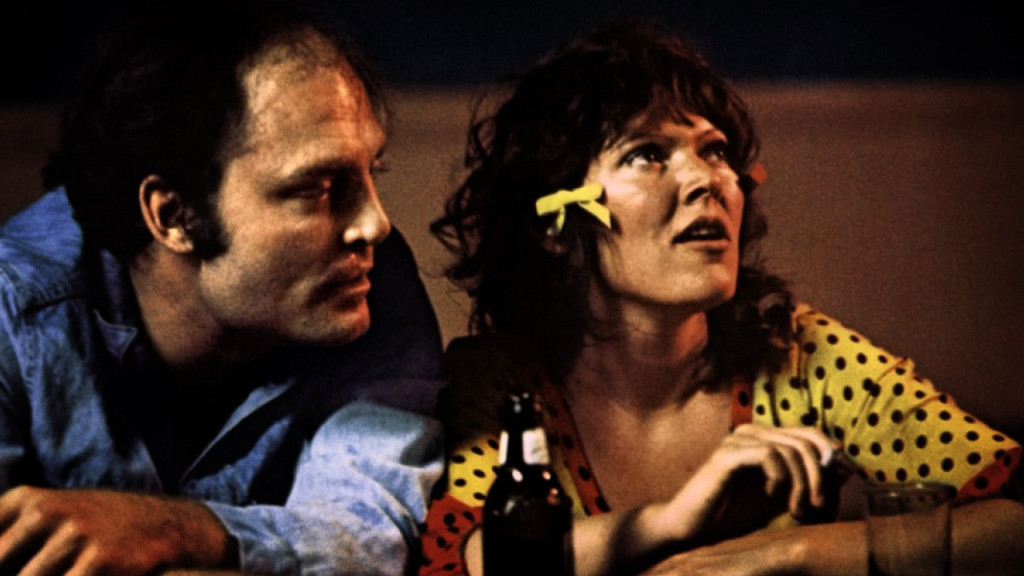
Four days from turning thirty, everyman Billy Tully drinks away his nights and spends his days as an itinerant labourer, all the while mourning the death of his youth when, as a boxer, he was an undefeated prospect and the pride of his hometown of Stockton, California. Then he fell in love, got married, and started losing. And then his wife left him. He laments, “There are some women that love you for yourself…but that doesn’t last.” Ever since, he tells his former manager Ruben, his life has “just been one damn mess after another.”
But he dreams of making a comeback. He dreams of getting back into shape, earning a hefty purse and then sending for his ex-wife. Billy fancies himself “the reliable type,” someone you can “count on right down the line,” though he agrees with his psychotically bitter girlfriend Oma that the wisest approach to human intercourse is to “screw everybody. They don’t leave you alone in this world.”
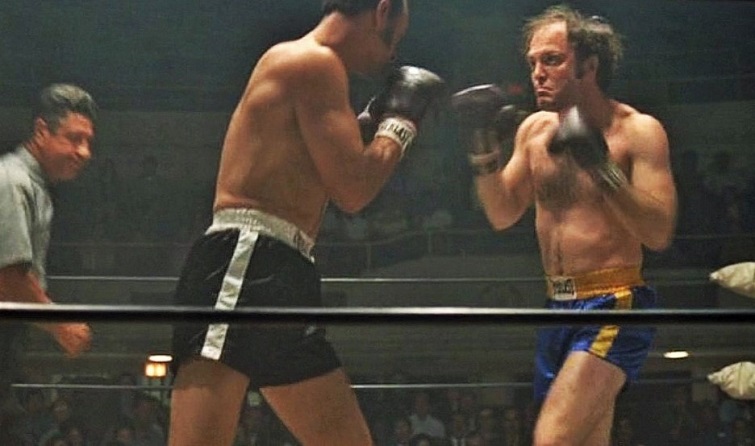
Despite the illusions Tully conjures to sustain the psychic comforts of his entrenched victimhood, he does finally start training again. According to Ruben, he’s “the best fighter I ever handled. He was tough and he had heart.” Indeed, he displays a preternatural capacity for survival, glimpsed in the film’s opening sequence. In his underwear, Tully lies in bed, staring at the ceiling, an unlit cigarette in his mouth. Unable to find matches, he follows the dingy hallway of his flophouse outside into a sunlit slum; instead of asking for a light from the bum smoking beside him, he flicks his cigarette in the gutter, smiles and dances a jig before fetching his gym bag from his room and sauntering to the YMCA to train. Here’s a person with a sense of humour about his squalor, a man with a measure of self-control and the will to mend his shattered life. He still hopes for a future.
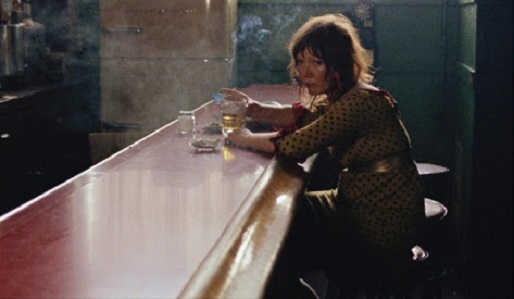
Notwithstanding a few lapses into drunken oblivion, his hope carries him through to a comeback bout, a climax epitomizing the cinematic tradition of “gritty realism.” He’s matched with a fierce puncher from Mexico City named Lucero, whom we see just prior to the bout agonizing in his motel room as he quaffs antacid and urinates blood. His damaged kidneys are a vicious twist of irony. Gaunt and pale, nonetheless he gets in the ring with Tully, who, after the first round, comments ringside to Ruben, “I hurt him downstairs.” In spite of his anguish, Lucero knocks Tully down and what follows is a war of attrition, the fighters trading punches and wrenching each others’ bloody faces.
In a pivotal moment between rounds, Ruben sponges the blood off Tully’s face as Billy stares across the ring right through Lucero; he sees not a man but a force of nature he can defeat only by annihilating all his fear and pain. His eyes convey a psychic absence, as if in that moment he’s of the world but not in it. He finally knocks out Lucero, though he’s oblivious to the fact, stumbling to his corner and mumbling, “Did I get knocked down?” Ruben replies, “No, we won! We won!” Tully neither smiles nor pumps his fists, but staggers over to Lucero and hugs him, embracing the symbol of all the suffering he’s endured over the years and from which he’s secured a fleeting victory.
But instead of persevering on his quest for rebirth, Tully resumes drinking and day-labouring and blaming everyone but himself for his plight. When his friend Ernie asks him if he’ll start training again, he shrugs and says, “Oh, I was thinkin’ about it.” He may fight again, and he may win, then return to drinking, then fight again. Then die.

Based on Leonard Gardner‘s acclaimed novel, Fat City is neither bleak nor pessimistic. It offers a moving and funny portrait of a man dreaming of a life within his reach, a life in “Fat City,” a state of mind where success and love and happiness abound. The film’s dialogue crackles with natural cadences and richly drawn characters who seem as if torn from the real world. In fact, the film is so brutally realistic that it serves as a painful prod to introspection and self-knowledge. Tully wages a universal struggle, his penchant for self-pity and his failure to grow up all too familiar for many of us. He yearns to overcome his romantic attachment to victimhood, revealing a self-awareness capable of admitting guilt for his downfall, but he keeps choosing the easier path of blaming a cruel world.

At the end of the film, Tully sits with Ernie and watches the trembling hands of an old waiter as he pours them coffee. Billy exchanges smiles with the frail man, then, leaning over to Ernie, begins the following exchange:
“How’d you like to wake up in the morning and be him? What a waste!”
“Maybe he’s happy.”
“Maybe we’re all happy.”
“Think he was ever young once?”
“No.”
“Maybe he wasn’t.”
Of course, Tully’s too smart not to know that he’s talking about himself, trying to brighten his spirits by comparing himself to a broken old waiter; deep down he knows a similar fate could easily be his. He’s also talking about us. His dream of reaching the heart of “Fat City” will probably elude him to the end, as it eludes those of us weaving our brief lives of unimportance punctured with moments of joy. For a while, Tully will keep on surviving. So will we. — Marko Sijan



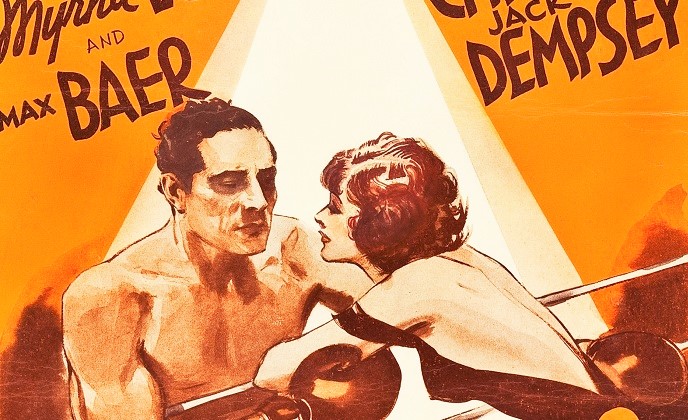
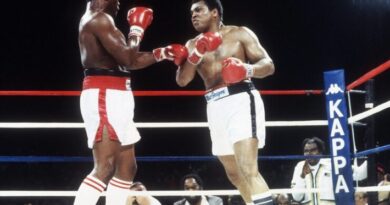
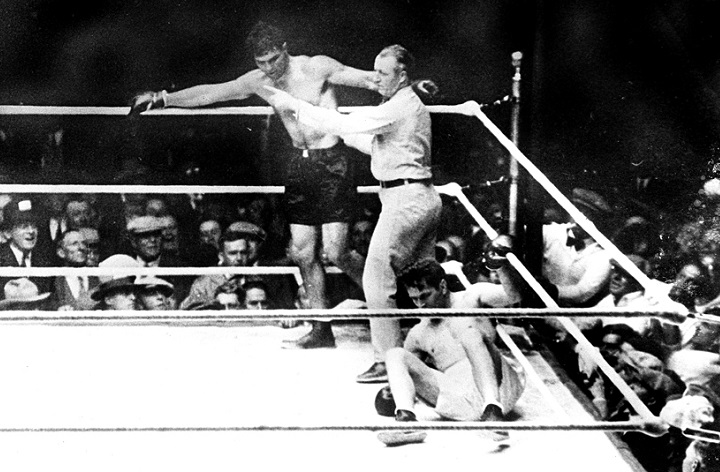
Great post. Thank you for sharing the humanity and melancholy.
Had a fight once, won a thousand dollars, got a bottle of bourbon and a woman. Man, that was fat city. Read the book, saw the movie as a 15 yr old. That and Rope Burns, best boxing literature ever written. I have Fat City plates on my bike. And I became a lifelong Jeff Bridges fan cuz he stole the show.
Stacy Keach is the man.
Just saw this on Criterion. This is a nice review.